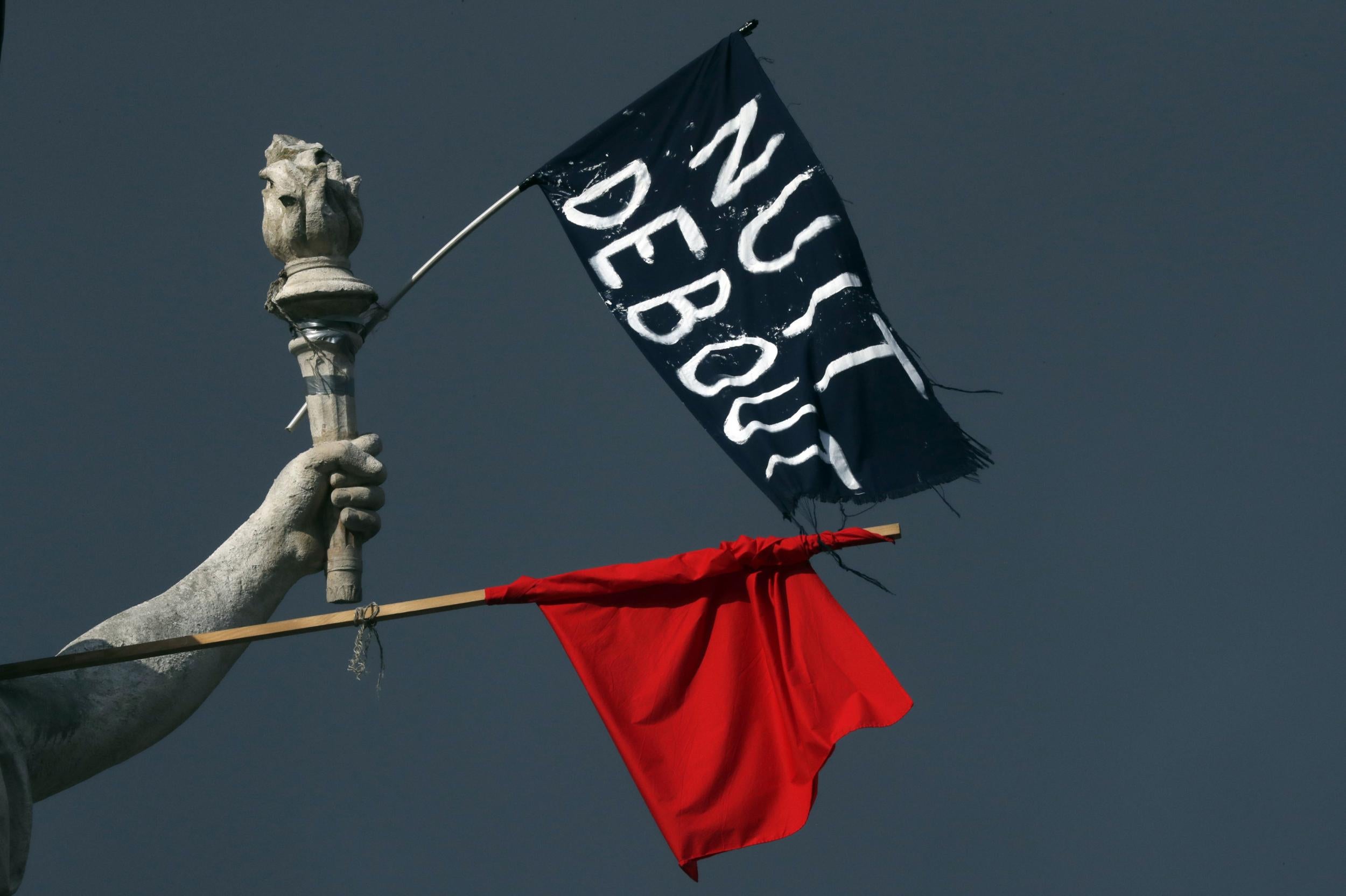The 'Nuit debout' protests could spawn a Podemos for France - but that's not what demonstrators want
Like the Indignados movement, protestors gathering in Paris feel excluded from mainstream politics. Becoming a part of the establishment won't help them meet their demands

Since January 2015, the Place de la République in Paris has become an emblem of a country in mourning. Flowers, messages and candles surround the huge statue of Marianne, symbol of the French republic. And every evening for the last 10 days, crowds of people have come together to drag the square back to life, transform it into a new agora, filled with light, colour, debates, music and dance.
This is the new movement known as ‘Nuit debout’ (‘up all night’) that has swept across France. Starting as a protest against the French government’s controversial deregulation of working laws, it has quickly become a focus point for a wide range of causes, unified by a shared sense of exclusion from the mainstream political system. And it is growing: this weekend events took place in almost 60 French cities and towns, and spilled over the borders into Belgium, Spain and Germany.
The movement aims to be non-hierarchical. No single figurehead has yet emerged, despite the best efforts of journalists to find one. Instead, a general assembly takes place each day where people have two minutes to speak. Debate tends to focus on the movement itself, but has also included such diverse matters as abortion rights and the political situation in the Democratic Republic of Congo.
The audience sits attentively as the light fades and the city moves around them, participating with a pre-defined set of hand-signals to show agreement, disagreement or boredom.
But that’s just the assembly. The rest of the square is devoted to art and the fête. At the feet of Marianne, a 20-person brass band is playing Get Lucky. A van blares out drum and bass. A circle forms around two actors, who are satirising the climate change agreement reached in the city last year. Spring has arrived in Paris.
So what is the point of all this? For Marin, a sixth-former at a local school, it’s important for people in society to “come together and share ideas while also having a good time”. For his friend Lisa, Nuit Debout “makes a change” from the confrontation that tends to characterise protest in France.
The French press has been quick to draw comparisons with the Indignados movement in Spain. Starting on 15 May 2011, the ‘15-M’ movement shared some characteristics with Nuit Debout, with large numbers of people occupying public squares to protest against the political system and economic austerity. The movement produced a new political party, Podemos, led by the charismatic Pablo Iglesias. It went on to win 46 seats in the Spanish general election at the end of 2015, despite existing for just 18 months.
Could Nuit Debout end the same way? As in other European countries, the political establishment is deeply unpopular. François Hollande’s personal ratings barely touch 20 per cent, and the right is so divided that Nicolas Sarkozy is attempting to make a comeback.
Many French people are horrified by the prospect of a re-run between Hollande and Sarkozy; Marine Le Pen lies in wait. But while the disaffection is certainly there, the French presidential system means that any new party would be very unlikely to dislodge one of the two establishment parties.
And Podemos isn’t necessarily a role model that many want to follow. Nuit debout is founded on participation and the rejection of representation. By entering party politics, Podemos became part of the establishment that the Indignados and Nuit Debout are reacting against.
Andrea, 29, sums up how many participants in Paris seem to feel: “At the start it was like this in Spain too, based on direct democracy. But as soon as Podemos entered into the party-political system, with the associated media circus and financial backing, it stopped working.
“If you say Nuit Debout will become the French Podemos, the French Syriza, you’re condemning it to failure, because they failed. That would be a huge shame.”


Join our commenting forum
Join thought-provoking conversations, follow other Independent readers and see their replies